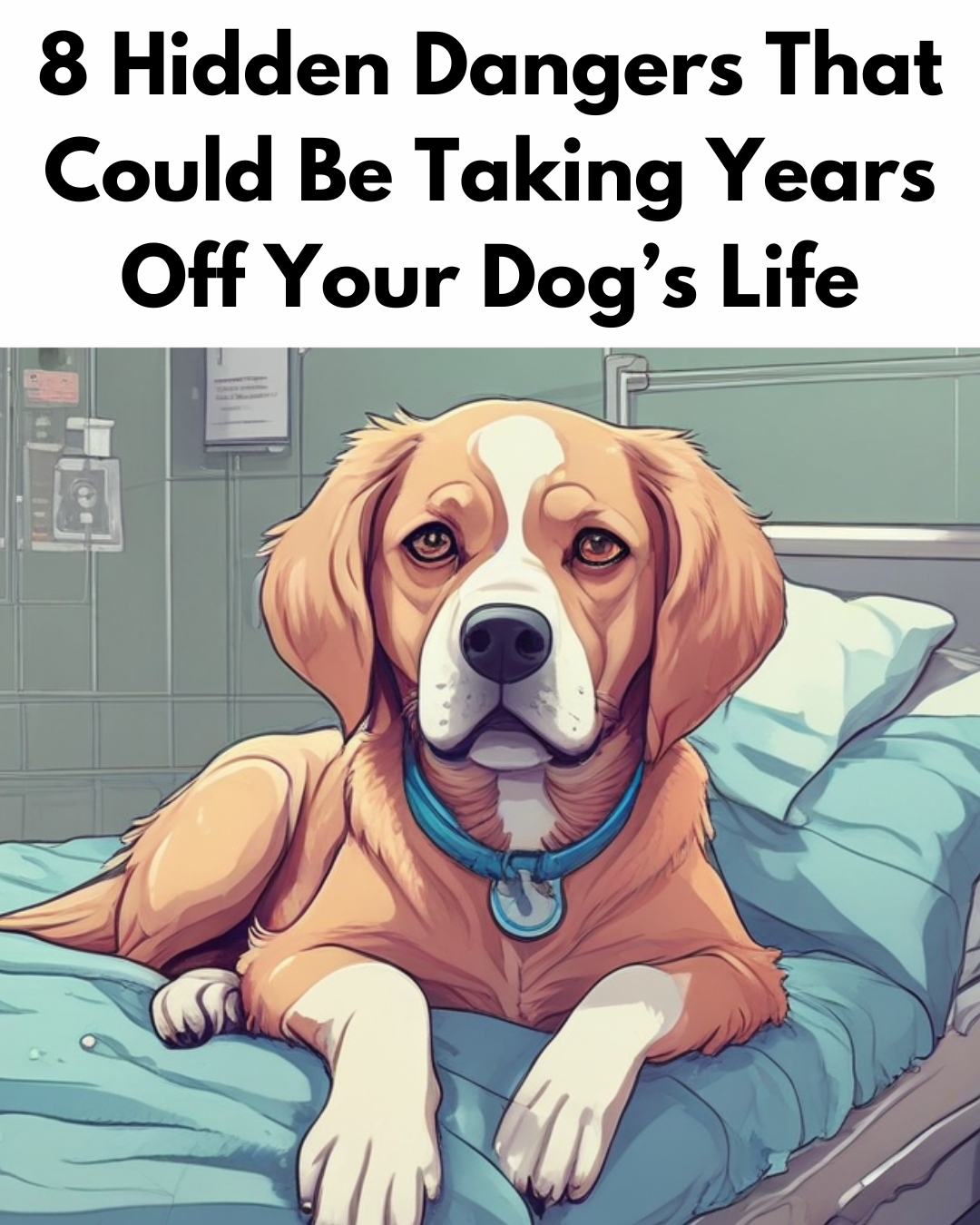We all want our dogs to live long, healthy lives.
But sometimes, without even realizing it, we expose them to hidden dangers that can shorten their lifespan.
These aren’t the obvious threats.
They’re the small, everyday habits that could be silently chipping away at their well-being.
Here are eight hidden dangers that could be taking years off your dog’s life.
1. Inconsistent Diet
Feeding your dog the wrong food can have serious consequences.
But what’s less talked about is how inconsistency in their diet can be just as harmful.
Switching between brands, introducing new treats without transition, or even varying their meal times can upset their digestive system.
A dog’s gut relies on routine.
Their digestive enzymes and gut flora are tuned to process certain types of food at regular intervals.
When you disrupt this routine, you risk causing gastrointestinal issues, nutrient absorption problems, and even long-term health conditions.
To give your dog the best chance at a long life, establish a consistent diet and stick to it.
2. Overlooking Dental Health
Dental care isn’t just about fresh breath.
Poor dental hygiene in dogs can lead to periodontal disease, which has been linked to more serious conditions like heart, liver, and kidney disease.
Many dog owners overlook the importance of regular teeth cleaning.
But ignoring those pearly whites can cost your dog years of their life.
Bacteria from the mouth can enter the bloodstream and affect vital organs.
This is why brushing your dog’s teeth regularly, providing dental chews, and scheduling professional cleanings are critical steps in extending their lifespan.
3. Neglecting Mental Stimulation
A bored dog is an unhealthy dog.
Mental stimulation is just as important as physical exercise.
Dogs are intelligent creatures that need challenges and engagement to stay mentally sharp.
Without it, they can develop behavioral issues, depression, and even cognitive decline as they age.
Engage your dog with interactive toys, puzzles, and regular training sessions.
Not only will this keep their mind active, but it will also strengthen your bond and contribute to their overall well-being.
4. Exposure to Environmental Toxins
Your home might feel like a safe haven, but it can be filled with hidden dangers.
Common household items like cleaning products, pesticides, and even certain plants can be toxic to dogs.
Long-term exposure to these toxins, even in small amounts, can lead to chronic health issues, including cancer.
Always opt for pet-safe cleaning products and keep hazardous substances out of reach.
Research the plants in your home and garden to ensure they’re non-toxic to pets.
Being vigilant about your dog’s environment can help avoid unnecessary risks to their health.
5. Lack of Regular Veterinary Checkups
Many dog owners believe that as long as their dog seems healthy, there’s no need for frequent vet visits.
But this couldn’t be further from the truth.
Regular veterinary checkups can catch early signs of disease before they become serious.
Dogs are masters at hiding pain and discomfort, so relying on visible symptoms alone is risky.
Routine blood work, dental exams, and physical assessments can detect issues that aren’t obvious on the surface.
Preventive care is key to ensuring your dog lives a long, healthy life.
6. Inadequate Exercise
We all know exercise is important, but it’s easy to underestimate just how much our dogs need.
Insufficient exercise can lead to obesity, joint problems, and cardiovascular issues, all of which can shorten your dog’s life.
Different breeds have different exercise requirements.
A high-energy breed like a Border Collie needs significantly more physical activity than a low-energy breed like a Bulldog.
Tailor your dog’s exercise routine to their specific needs and ensure they get a mix of physical and mental stimulation.
A well-exercised dog is a healthy, happy dog.
7. Ignoring Joint Health
Joint health is often overlooked until it becomes a problem.
But by then, the damage may already be done.
Large breeds are especially prone to joint issues like hip dysplasia and arthritis.
But even small dogs can suffer from joint degeneration if proper care isn’t taken.
Joint supplements, weight management, and regular low-impact exercise can help maintain your dog’s joint health.
Starting these preventive measures early can make a significant difference in your dog’s quality of life as they age.
8. Allowing Stress to Build Up
Stress isn’t just a human problem.
Dogs experience stress too, and it can have serious effects on their health.
Chronic stress can weaken their immune system, making them more susceptible to illness.
It can also lead to behavioral issues, digestive problems, and a shorter lifespan.
Identify and eliminate stressors in your dog’s life.
This could be anything from a lack of routine, too much alone time, or even tension in the household.
Provide a calm, stable environment and ensure your dog has plenty of time to relax and feel secure.
Stress management is just as important for your dog’s health as it is for yours.
Conclusion
Your dog depends on you for their health and well-being.
By being aware of these hidden dangers, you can take proactive steps to protect them.
Small changes in diet, routine, and care can have a big impact on your dog’s longevity.
The key is consistency, vigilance, and a commitment to your dog’s health.
Every day is an opportunity to help your dog live a longer, healthier life.
Take these insights to heart and make the necessary adjustments.
Your dog will thank you for it.
And you’ll enjoy more years of companionship with your best friend.




